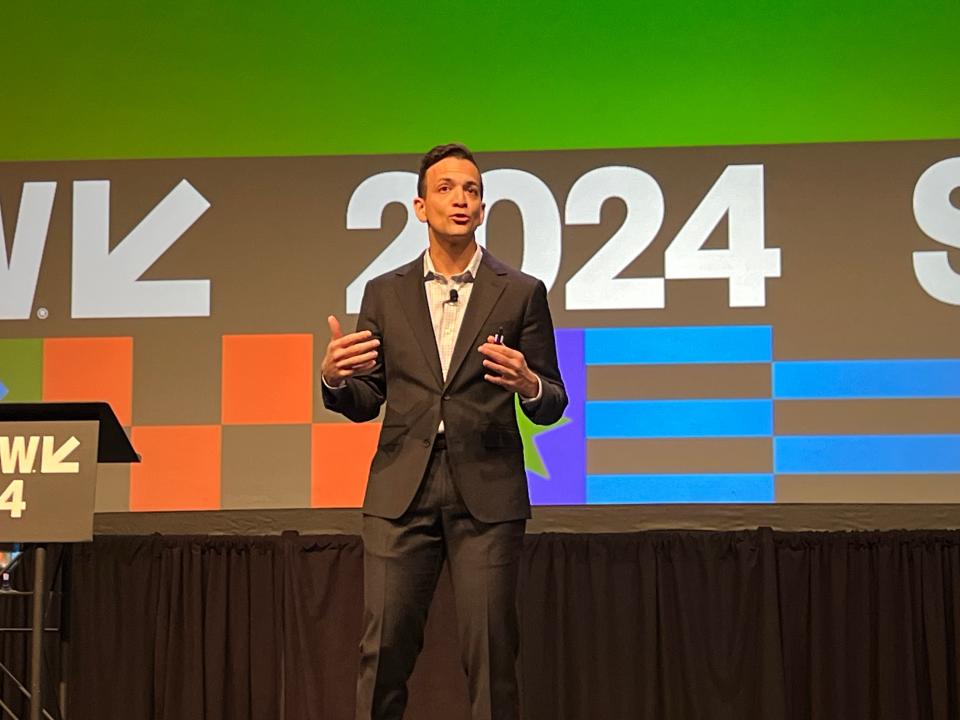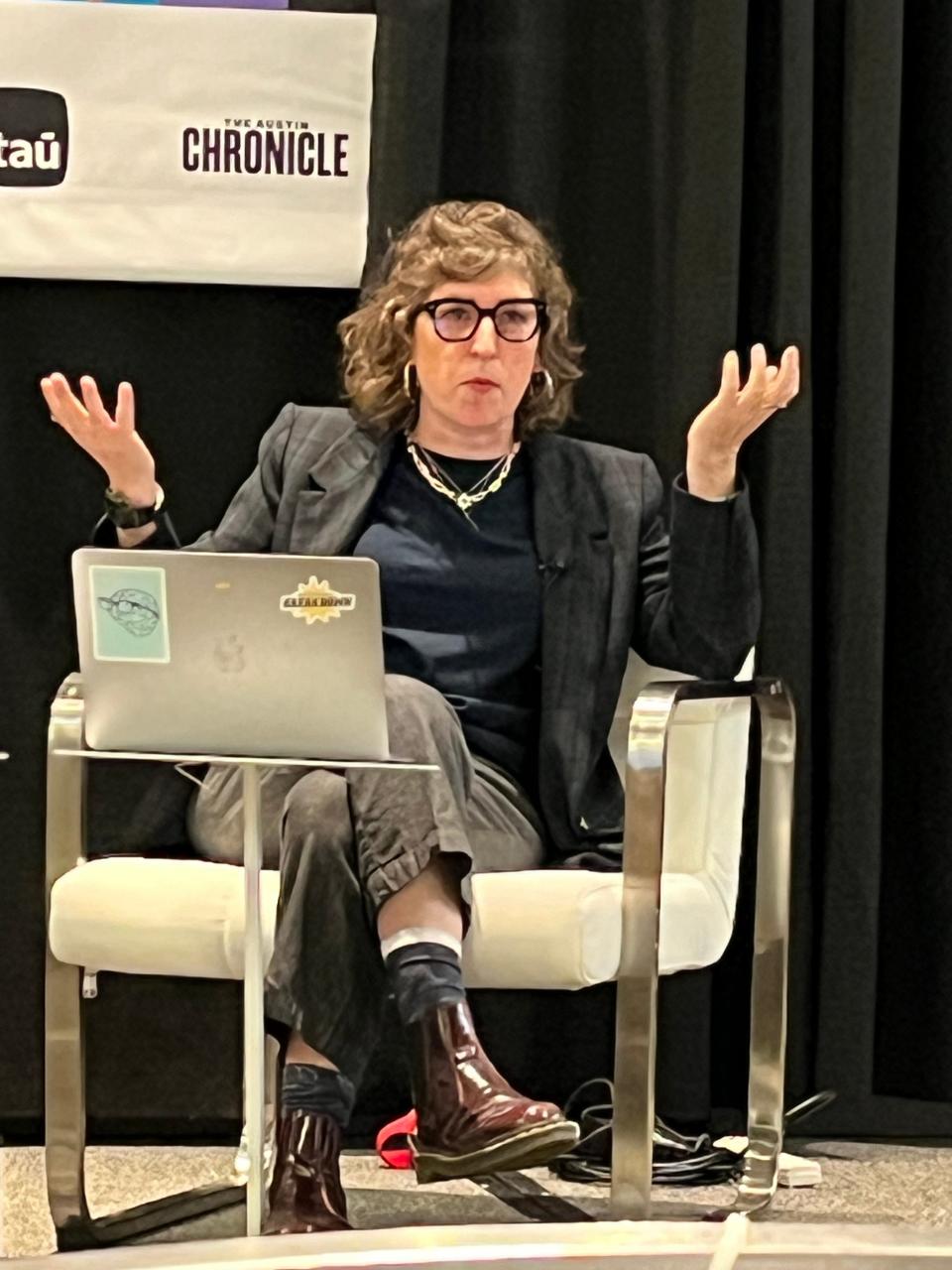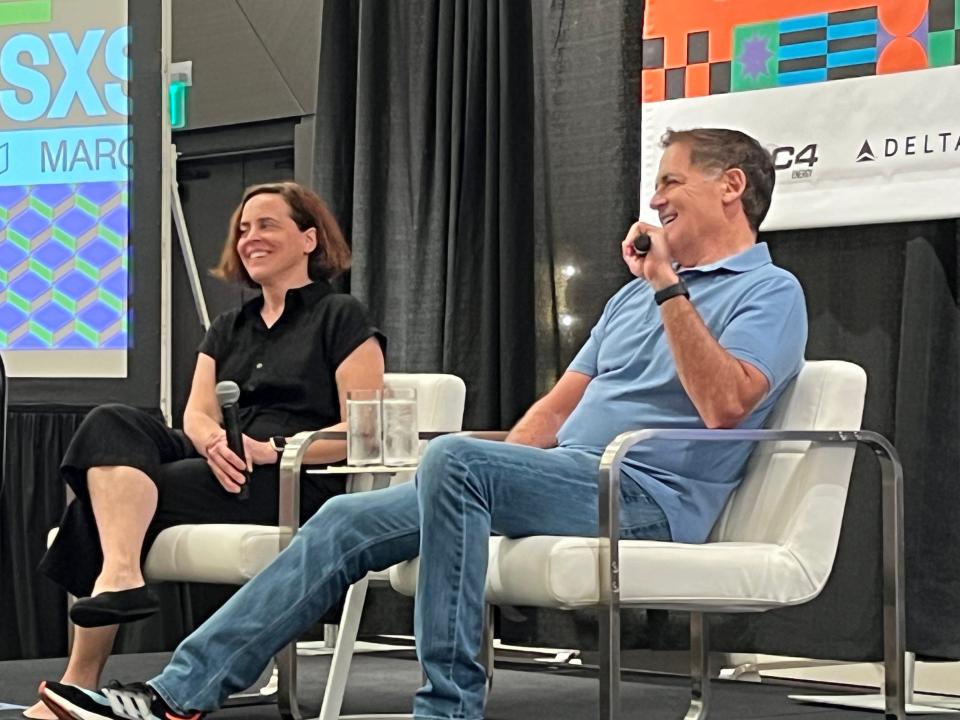What's the future of health? SXSW panels talk AI, tech, personalized medicine and more
- Oops!Something went wrong.Please try again later.
Can artificial intelligence make you healthier? Can you tell if your heart is failing by going to the bathroom? Will a fungus cause our next pandemic? And will we all be eating mushrooms to improve our mental health?
South by Southwest's five days of panels and keynotes in its health and medical technology track pondered big-picture questions about what the future of health care will be and showed us what's already possible.
Here's what we learned:
Your toilet could provide health answers
Dr. Vin Gupta, a medical consultant for MSNBC, spoke about improving access to health care through current technologies. One example: a toilet with sensors to monitor a person's pulse, blood pressure and oxygen levels while sitting on the toilet as part of their daily routine. Another: a mirror that looks into your eyes while you brush your teeth and retrieves this same information.

Data collection improvements from smartwatches could prove more effective than blood pressure cuffs because more people wear smartwatches and the data is more reliable, he said.
Blood tests for specific T cells to screen for cancers can be more accurate and cost-effective than expensive whole-body MRI or the current one-cancer specific tests like colonoscopies or mammograms.
Is Austin the next boomtown? Investor Jim Breyer, UT leaders talk AI and medicine
Artificial intelligence is part of health care and shouldn't be feared
Panel after panel in the health track noted that artificial intelligence is a potential solution to a growing scarcity of health workers.
University of Texas Dell Medical School Dean Dr. Claudia Lucchinetti led an AI and medicine discussion, and she participated on a panel on the growth of Austin as a medical and technology hub. AI will "retool" the way medical schools deliver education, she said. Doctors need to be both empathetic and trained in technology, Lucchinetti said.
AI will help in medical record-keeping so doctors can spend more time with patients. AI will sort through massive amounts of data to help make predictive diagnoses that a human doctor will take under advisement.
Gupta said AI can allow a patient or a doctor to put in test results, symptoms and medical readings to receive a suggestive diagnosis. Gupta likens it to the next generation of WebMD, but with more personalized answers.
'I am in a better place now': Selena Gomez talks mental health at SXSW
Access and equity the prevailing roadblock in health care
Equity came up repeatedly in panels on cancer; diabetes; LGBTQ+ and women's health; dementia and aging; and AI and technology.
Some solutions for greater health care equity:
Home care through telehealth, community health workers and wearable technology or apps that are better than the current patient portals.
Medical school education that includes diversity, equity and inclusion training and affirming the gender spectrum.
Recruiting of practitioners that mirror their community and speak the same language.
Legislation to reduce prescription costs and require insurance to cover those prescriptions.
AI to sort through patient data, identify gaps and help providers target patients directly for care they are missing.
Reimbursing family members for the care they provide.

Psychedelics will become more mainstream
Psychedelic medicine company Reunion Neuroscience is currently enrolling 72 participants in a phase 2 clinical trial for postpartum depression treatment using psilocybin (aka mushrooms). The FDA is expected to approve the use of MDMA (aka Molly or ecstasy) for post-traumatic stress disorder this summer.
These aren't home treatments. They will be highly regulated and done under the care of a health care worker.

Why don't taxpayers own the drugs we fund?
Entrepreneur Mark Cuban asked this question of Renee Wegrzyn, director of the federal Advanced Research Projects Agency for Health. ARPA-H is designed to fund moonshot projects like whole eye transplant or reversing osteoarthritis by having joints heal themselves.
"Moonshots when they hit, not only have an impact on public health, but they can have an impact financially," Cuban said. Imagine the impact they could have if we made "taxpayers the shareholders," he said.
Gupta also referenced this problem in his talk about accessibility. The research for medications like the new diabetes and weight loss drugs was funded by the National Institutes of Health, he said, yet people can't access those medications when their insurance won't pay.
Best moments we've seen at SXSW so far: Hot movie premieres, smart women and a royal visit
Could a fungus cause the next pandemic?
Riffing off of the TV show/video game "The Last of Us," in which a fungus takes over humanity, a panel on fungi talked about that possibility. With global warming, fungi have become more adapted to higher temperatures like the human body, and with the use of fungicides in farming, fungi are more resistant to treatments.
So what can be done? Right now, we only have three medications to treat a fungal infection, at least the only three that won't kill the human.
Scientists are trying to get federal legislation called the Pasteur Act passed by Congress. This would provide funding to stockpile these medications and develop new ones for just-in-case scenarios and make developing antifungals economically sound.
We need to think of antifungal medications like a fire extinguisher, said Dr. John Rex, a drug developer. You invest in having a fire extinguisher to hopefully never use it, he said.
This article originally appeared on Austin American-Statesman: SXSW 2024 panels talk future of AI, tech and health equity in Austin

